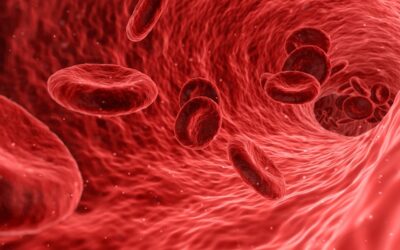With a global rise in cancer cases, more people are experiencing anxiety and depression as they deal with the initial shock of diagnosis and the physical and mental toll that comes with the illness and treatment.
Many are turning to complementary therapies, such as mindfulness-based interventions, yoga, tai chi, acupuncture, and relaxation techniques, to supplement conventional medicine in a combined approach known as integrative therapy.
In a significant move towards supporting the emotional well-being of cancer patients, the Society for Integrative Oncology and the American Society of Clinical Oncology have recently published guidelines that endorse these complementary or integrative therapies.
These recommendations aim to empower cancer patients as they navigate the challenges of anxiety and depression, offering them a more holistic approach to treatment and healing.
Addressing an unmet need
“For myself, as a breast medical oncologist, it is my patients who continually inspire me to look for new ways to help manage the symptoms of their cancer and cancer-related treatment,” explained Alissa Huston, a medical oncologist and Co-Medical Director of the Pluta Integrative Oncology & Wellness Center at the University of Rochester Medical Center, New York and an expert panel member involved in issuing the guidelines.
The prevalence of depression among cancer patients is estimated at 21% worldwide, with similar figures for anxiety, and untreated, has been associated with increased mortality. While conventional treatments, such as chemotherapy, may be lifesaving, they don’t necessarily address the emotional burden and mental toll of dealing with something as difficult as cancer.
The idea is that complementary therapies used alongside conventional medical care improve patient outcomes and quality of life. This could be why studies are now finding that up to a half of cancer patients are turning to integrative therapies to improve their mental health.
Incorporating different points of view
In a joint effort to help address this, the Society for Integrative Oncology and the American Society of Clinical Oncology assembled a team of multi-disciplinary experts to review evidence from the last 33 years for and against using complementary therapies for depression and anxiety symptom relief in adult cancer patients.
The society sought the views not just of cancer specialists and healthcare professionals, but also experts in mind-body interventions and representatives of patients for members of their expert panel. But what sets these guidelines apart is their commitment to inclusivity.
In a significant move, the public had an opportunity to comment on the guidelines. Engaging the public can give people a voice and opportunity to be heard while facilitating mutual learning between scientists and society.
The now published guidelines introduce a spectrum of recommendations aimed at alleviating depression or anxiety both during and after active treatment. In all cases, the benefits of these therapies were found to outweigh the harms, even if in some cases the evidence is weak.
Backing it up with evidence
The true benefits of these integrative therapies are not easy to research because carrying out a controlled study — where patients are “masked” and unaware of the therapy they are receiving — is often not possible or realistic.
In the context of integrative therapies, patients know the intervention they are receiving and are therefore aware of the probable benefit, which can introduce a bias when they are asked to report how they feel after the intervention. Added to this is an overall lack of studies which include patients from diverse backgrounds and with different types of cancer besides breast cancer, making this area of study challenging.
But that’s not to say there isn’t any evidence to support these measures. “There is high-quality research evidence and a strong recommendation for mindfulness-based interventions to help improve symptoms of both anxiety and depression for cancer patients during active treatment and also following treatment,” Huston explained in an email. These mindfulness-based interventions are weekly sessions teaching patients meditation and gentle yoga practices.
“There are additional recommendations for other integrative modalities that have shown moderate benefit, for example, yoga for patients with breast cancer, relaxation, or music-based interventions,” she added. “This is important information for patients in their decision making process with their providers about what may be the optimal interventions to include in their symptom management plan.”
Relaxation techniques or hypnosis are also recommended for managing anxiety in those undergoing cancer treatment, while reflexology, Tai chi, and qigong (an ancient Chinese practice using exercises to direct energy throughout the body) are recommended even though there is weak evidence to support their benefit.
This may be due to inconsistent findings or limited studies in the field. For example, yoga, tai chi, and qigong are specifically recommended for breast cancer because a majority of the studies are in this type of cancer, though they could have benefits in other types.
Despite this, evidence remains positive, and their inclusion in the recent guidelines provides a useful tool for professionals caring for cancer patients.
Because each patient is unique, the individual being treated should be considered when recommending these therapies, which should be openly discussed between care providers and patients. Essentially, any of these integrative therapies may be beneficial, so long as the individual is drawn to the modality and likely to participate on a regular basis.
Spreading the word
Huston indicates that now that the guidelines have been established, greater awareness is needed among practitioners and patients alike.
“Through raising awareness, talking about the guideline, and expanding outreach and education to providers, we can increase understanding of the benefit of integrative modalities to support our patients with anxiety and depression during cancer treatment and beyond,” she noted.
The panel acknowledge such therapies are not easily accessible to all and can carry cost implications. For some patients, this may limit access but there are ways around this, according to Huston.
“Many of the recommended modalities included in the guideline are available in different formats, including virtual delivery as well as in person, which creates an ideal platform to be able to expand access to services on a broader scale for patients,” she said. “This is important for those living in regions where access to services may be more limited.”
Linda Carlson, professor at the Department of Oncology at the University of Calgary and lead author of the guidelines, recommends that people with cancer be their own biggest advocates in gaining access to these types of therapies.
“If you walk into your oncology center with a copy of these recommendations from the largest professional cancer organization in the world, asking where the programs are, it’s hard for anyone to argue with that,” she said.
With such strong backing from two societies, these guidelines represent a significant turning point for the use of integrative approaches in cancer.
Reference: Carlson, L. E., et al., Integrative Oncology Care of Symptoms of Anxiety and Depression in Adults With Cancer: Society for Integrative Oncology–ASCO Guideline, J Clin Oncol (2023). DOI: 10.1200/JCO.23.00857

















